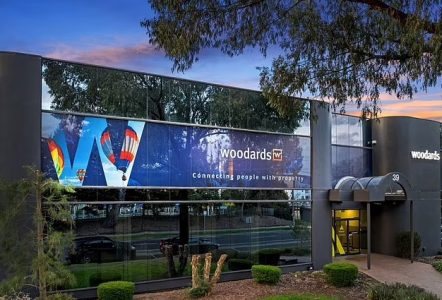You won't believe what this Melbourne real estate agency asked a renter to do – Public fury ensues!
By
- Replies 10
In a move that has left many shaking their heads in disbelief, a Melbourne real estate agency, Woodards Croydon, has sparked a wave of outrage after making a request that many are calling 'tone deaf'. In an email that has since gone viral, the agency asked a renter to donate their government-issued $300 energy rebate to a fundraiser for homelessness.
Now, we at the Seniors Discount Club understand the importance of giving back to the community, especially to support those less fortunate. Charitable acts are a cornerstone of a compassionate society, and many of our members are active volunteers and donors to various causes. However, the approach taken by Woodards Croydon has raised eyebrows and ire across the board.
The controversial email was sent to tenants as part of the agency's participation in the Vinnies CEO Sleepout, an annual event aimed at raising awareness and funds to support people experiencing homelessness. While the cause is undoubtedly noble, the method of solicitation has been widely criticized.
The email highlighted the $300 energy rebate, part of the Federal Budget's cost-of-living relief measures, as potential funds for donation. It's important to note that this rebate is not a cash handout but a quarterly discount on energy bills, paid directly to the provider. The intention behind the rebate is to ease the financial burden on households amid rising living costs, not to serve as a donation pool.
The tenant who received the email took to social media to express their frustration, pointing out the irony of asking renters – who are often just a paycheck away from housing insecurity themselves – to donate money intended to help them keep the lights on. The sentiment was echoed by many, who felt that the request was not only tone-deaf but also indicative of a larger issue within the housing market.
Woodards CEO Nigel O'Neil defended the agency's actions, citing a long history of charitable work and fundraising. He explained that the agency has raised significant funds for homelessness services over the years and that a portion of their sales and leasing fees is donated to their foundation, which supports vulnerable Victorians.
However, the question remains: why target tenants, many of whom are already struggling with the high cost of living and housing affordability crisis? The backlash has been swift, with commenters suggesting that the agency should have directed their fundraising efforts towards landlords or even taken a cut from their own profits to make a donation.
The incident has sparked a broader conversation about the ethics of fundraising and the responsibilities of businesses when engaging with their clients for charitable causes. It also highlights the delicate balance between encouraging philanthropy and respecting the financial circumstances of individuals, particularly in a climate where many are facing economic hardship.
For our senior members, who often live on fixed incomes and are acutely aware of the importance of every dollar, this story serves as a reminder to be judicious about where and how we choose to donate. It's also a call to businesses and organizations to consider the optics and implications of their fundraising strategies.

We invite you to share your thoughts on this situation. Have you ever been asked to donate in a way that felt inappropriate or insensitive? How do you decide which causes to support, and what advice would you give to organizations seeking donations? Let's have a conversation about the ethics of giving and the ways we can all contribute to a more understanding and supportive community.
Now, we at the Seniors Discount Club understand the importance of giving back to the community, especially to support those less fortunate. Charitable acts are a cornerstone of a compassionate society, and many of our members are active volunteers and donors to various causes. However, the approach taken by Woodards Croydon has raised eyebrows and ire across the board.
The controversial email was sent to tenants as part of the agency's participation in the Vinnies CEO Sleepout, an annual event aimed at raising awareness and funds to support people experiencing homelessness. While the cause is undoubtedly noble, the method of solicitation has been widely criticized.
The email highlighted the $300 energy rebate, part of the Federal Budget's cost-of-living relief measures, as potential funds for donation. It's important to note that this rebate is not a cash handout but a quarterly discount on energy bills, paid directly to the provider. The intention behind the rebate is to ease the financial burden on households amid rising living costs, not to serve as a donation pool.
The tenant who received the email took to social media to express their frustration, pointing out the irony of asking renters – who are often just a paycheck away from housing insecurity themselves – to donate money intended to help them keep the lights on. The sentiment was echoed by many, who felt that the request was not only tone-deaf but also indicative of a larger issue within the housing market.
Woodards CEO Nigel O'Neil defended the agency's actions, citing a long history of charitable work and fundraising. He explained that the agency has raised significant funds for homelessness services over the years and that a portion of their sales and leasing fees is donated to their foundation, which supports vulnerable Victorians.
However, the question remains: why target tenants, many of whom are already struggling with the high cost of living and housing affordability crisis? The backlash has been swift, with commenters suggesting that the agency should have directed their fundraising efforts towards landlords or even taken a cut from their own profits to make a donation.
The incident has sparked a broader conversation about the ethics of fundraising and the responsibilities of businesses when engaging with their clients for charitable causes. It also highlights the delicate balance between encouraging philanthropy and respecting the financial circumstances of individuals, particularly in a climate where many are facing economic hardship.
For our senior members, who often live on fixed incomes and are acutely aware of the importance of every dollar, this story serves as a reminder to be judicious about where and how we choose to donate. It's also a call to businesses and organizations to consider the optics and implications of their fundraising strategies.
Key Takeaways
- A Melbourne real estate agency, Woodards Croydon, faced backlash after asking tenants to donate their $300 energy rebate to a fundraiser for the homeless.
- The tenants received an email emphasising the opportunity to 'pay it forward' by donating their rebate to the Vinnies CEO Sleepout.
- The agent's message was criticised as 'tone deaf' and 'a slap in the face', given the context of high housing unaffordability.
- Woodards CEO defended the agency's charitable history and the broad request for donations, stating that everyone deserves fundamental needs like shelter and food.
We invite you to share your thoughts on this situation. Have you ever been asked to donate in a way that felt inappropriate or insensitive? How do you decide which causes to support, and what advice would you give to organizations seeking donations? Let's have a conversation about the ethics of giving and the ways we can all contribute to a more understanding and supportive community.
Last edited by a moderator:








